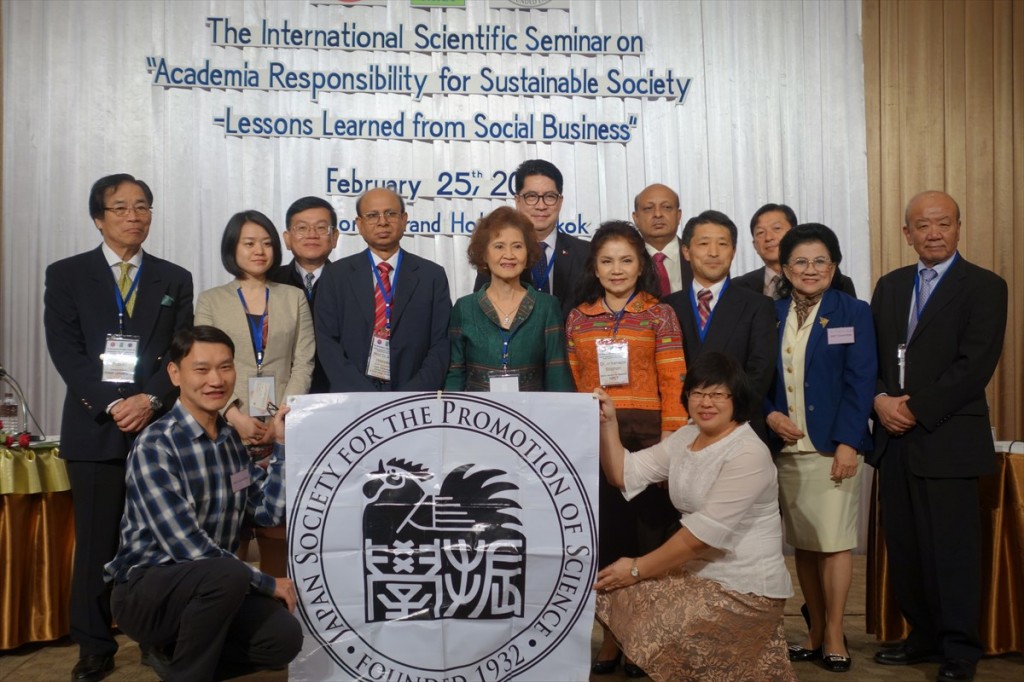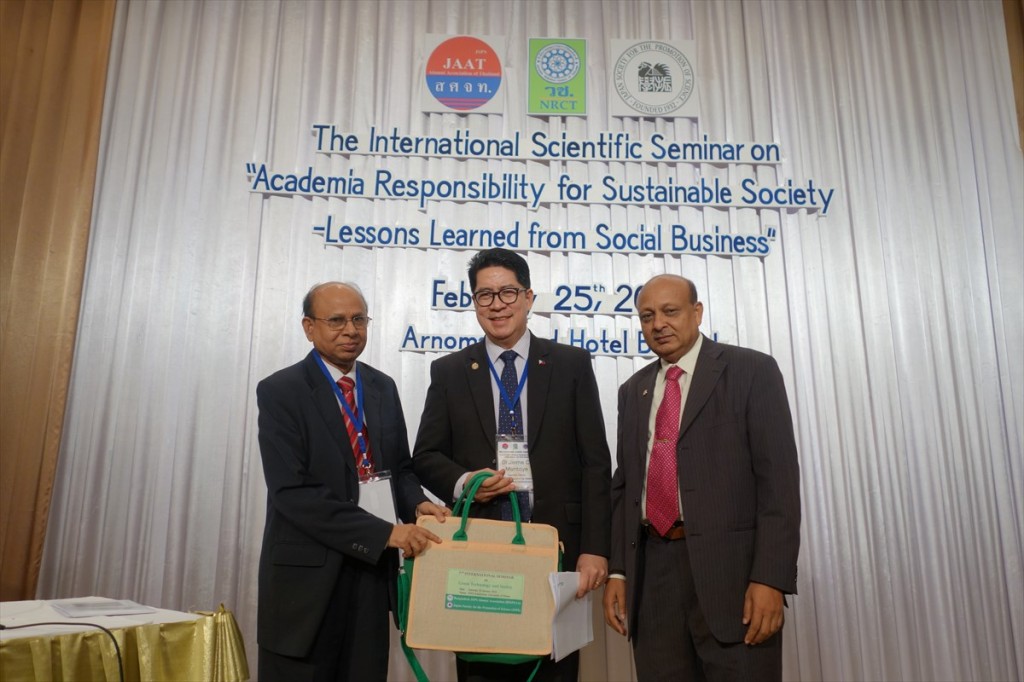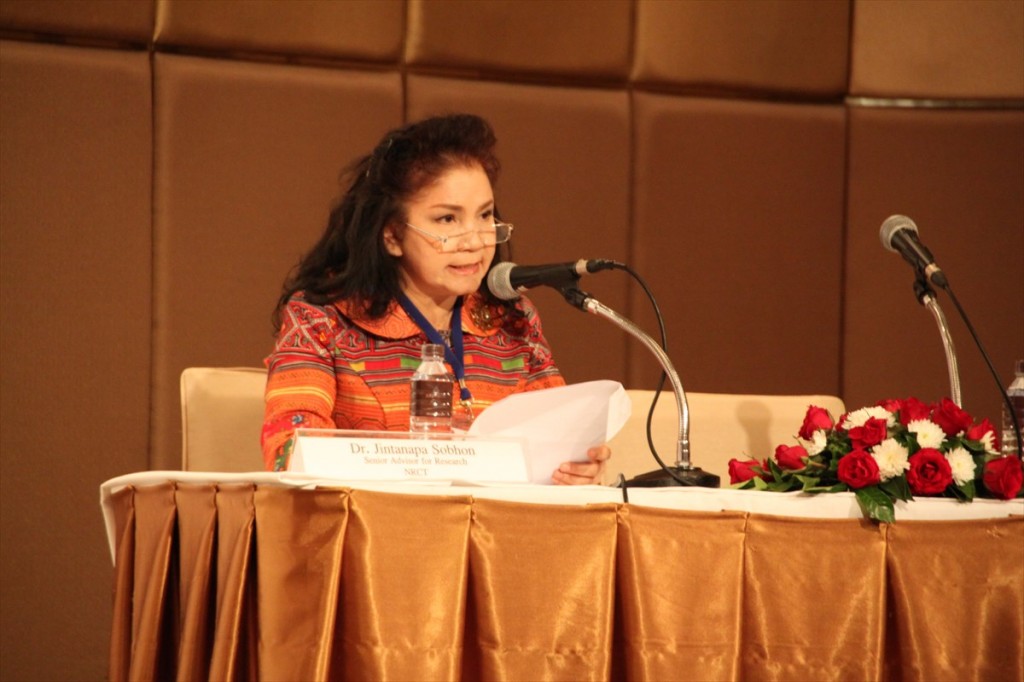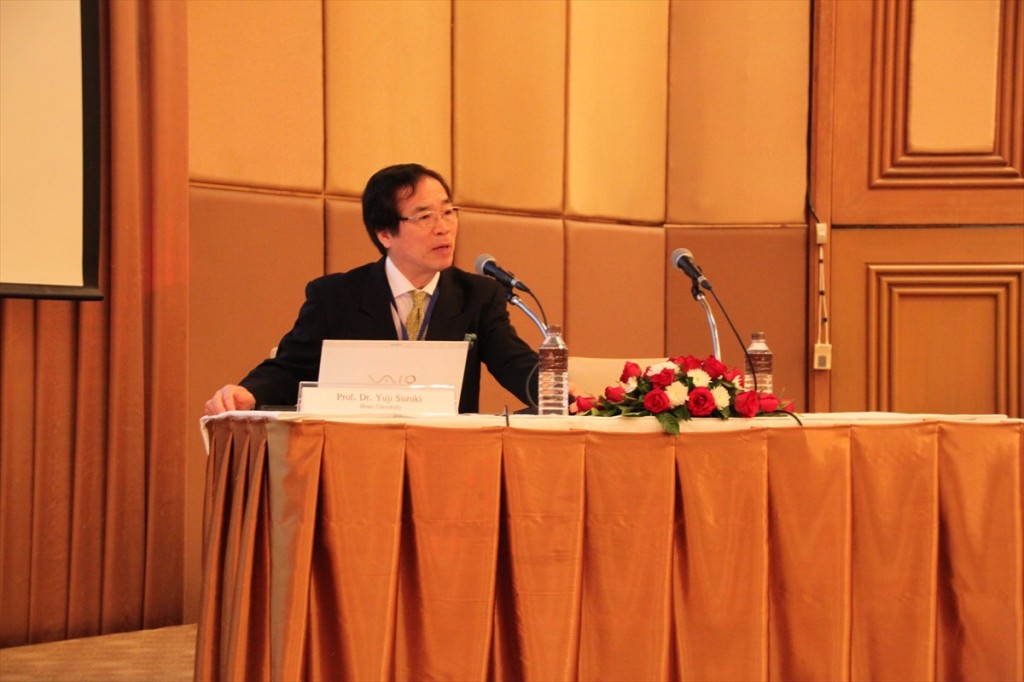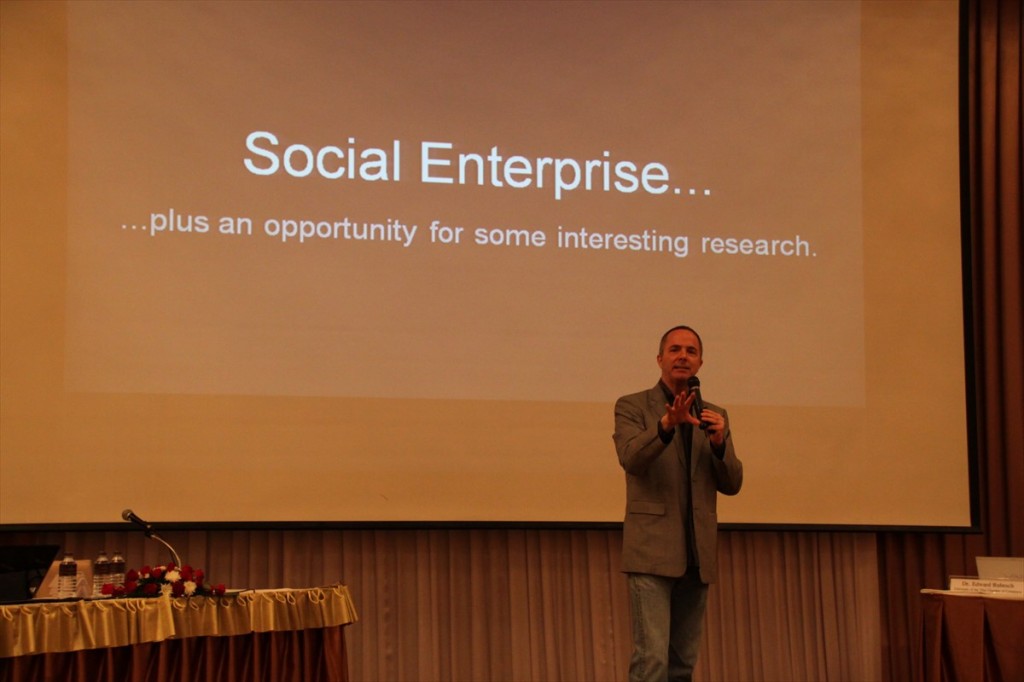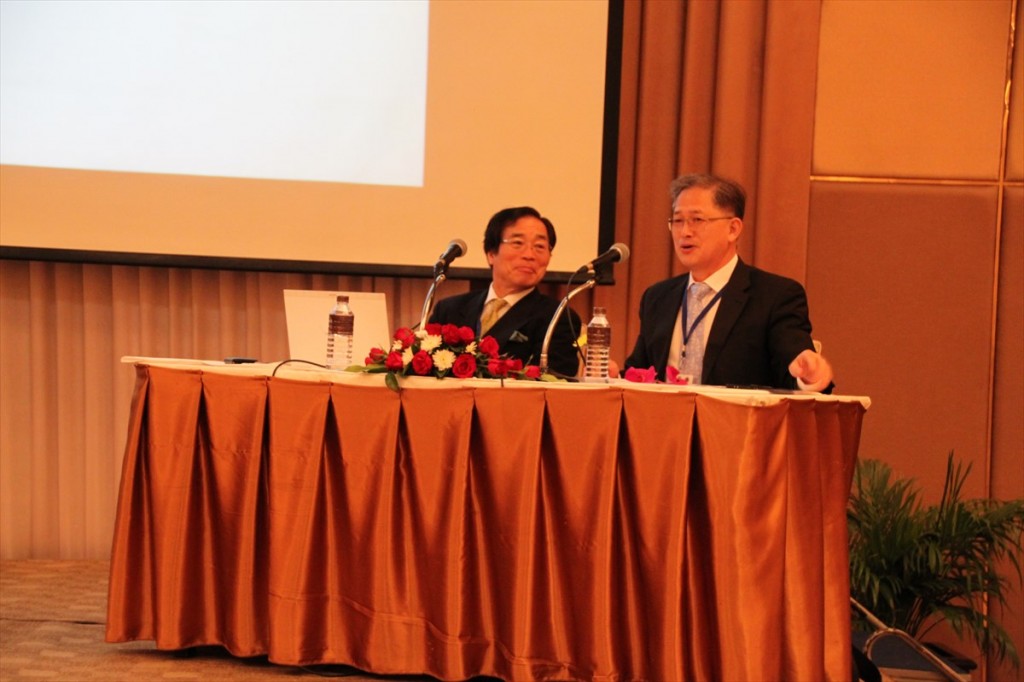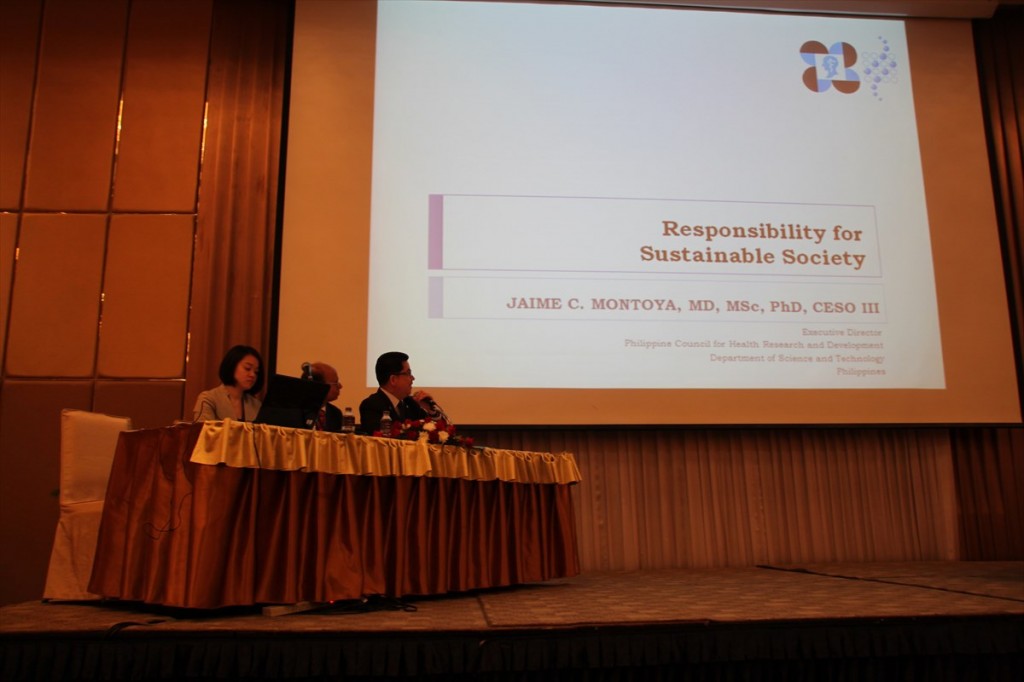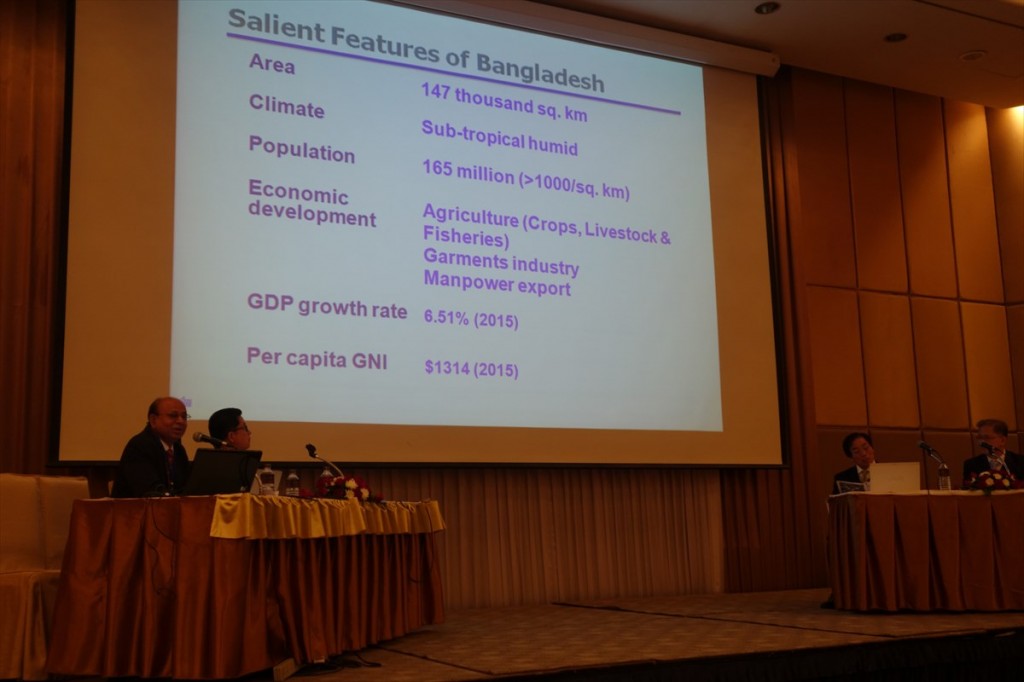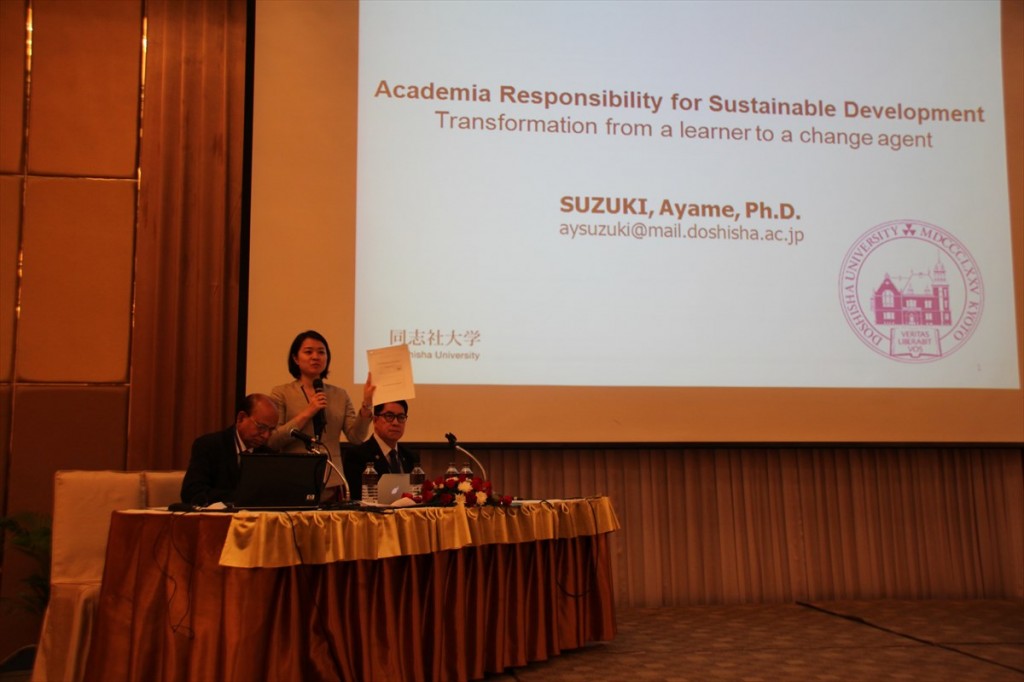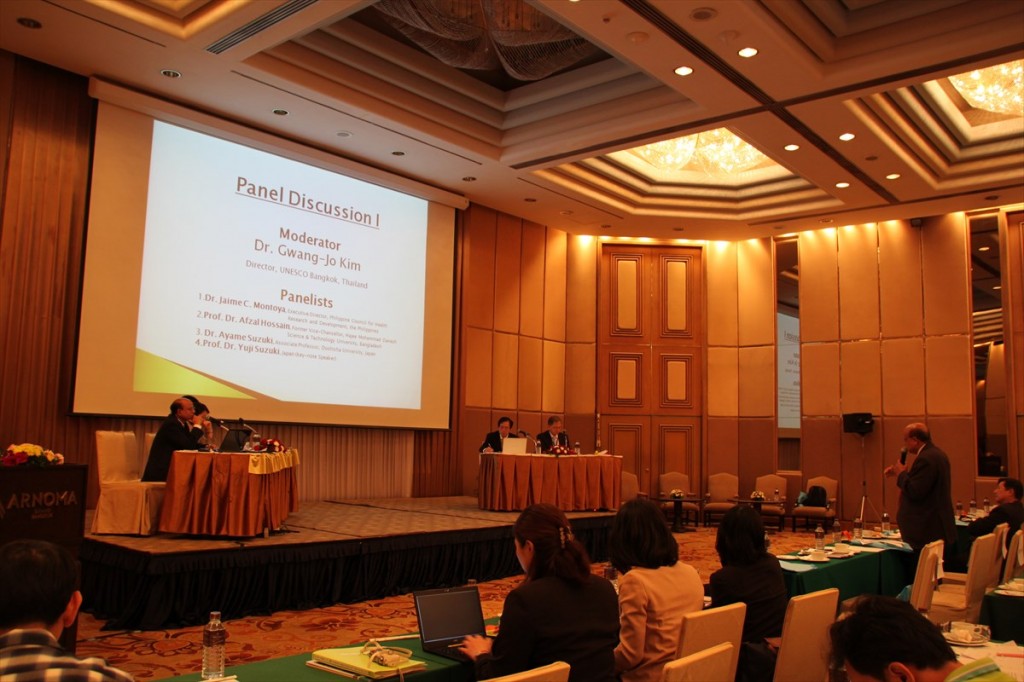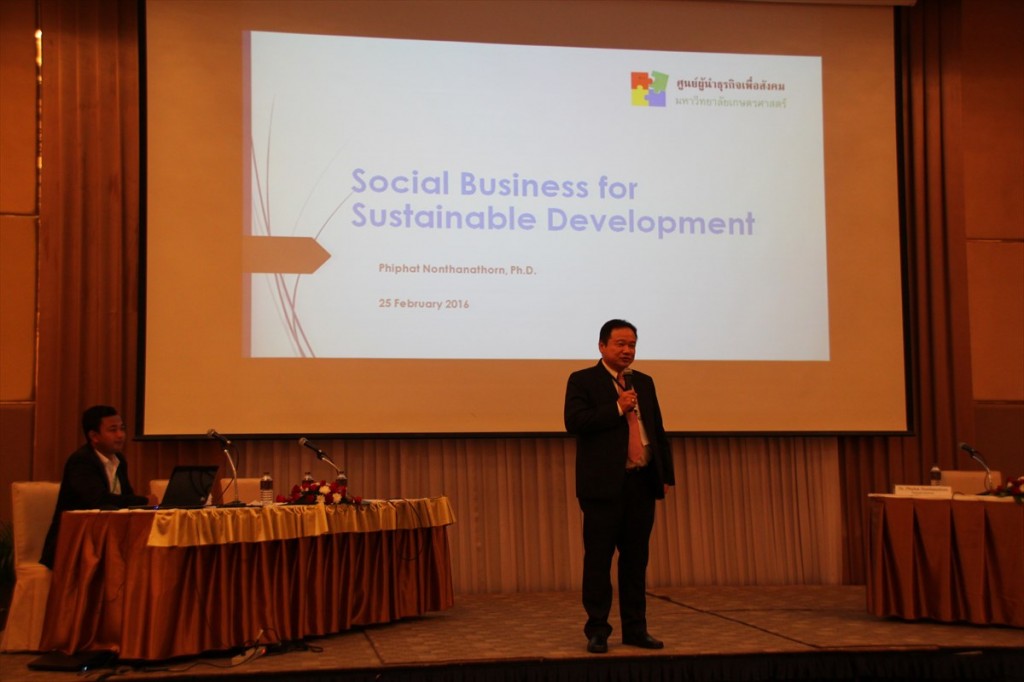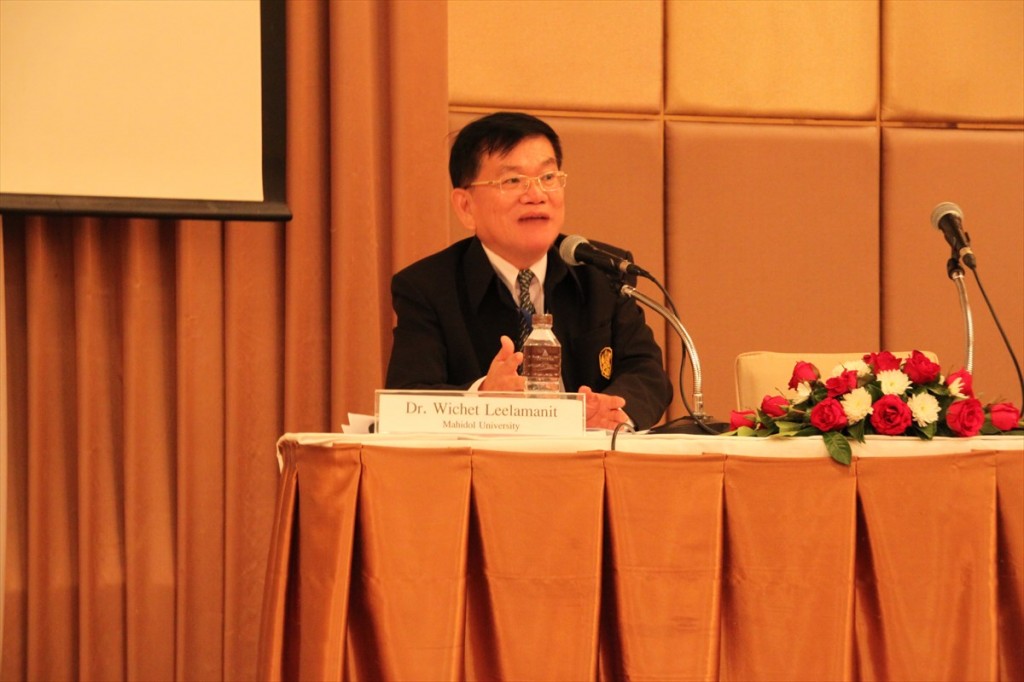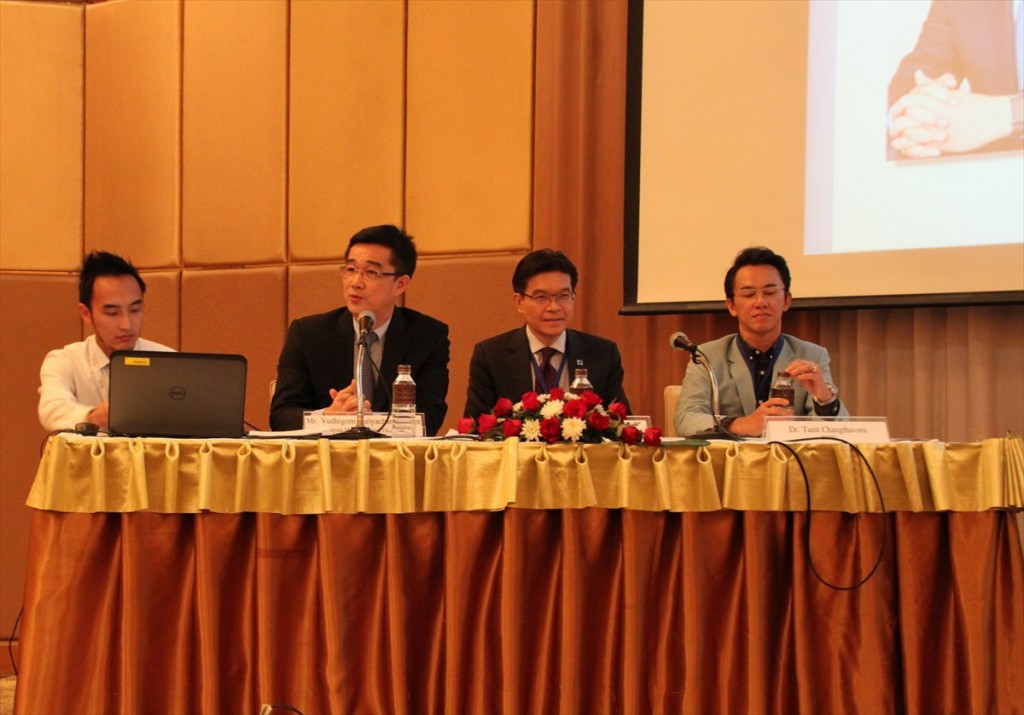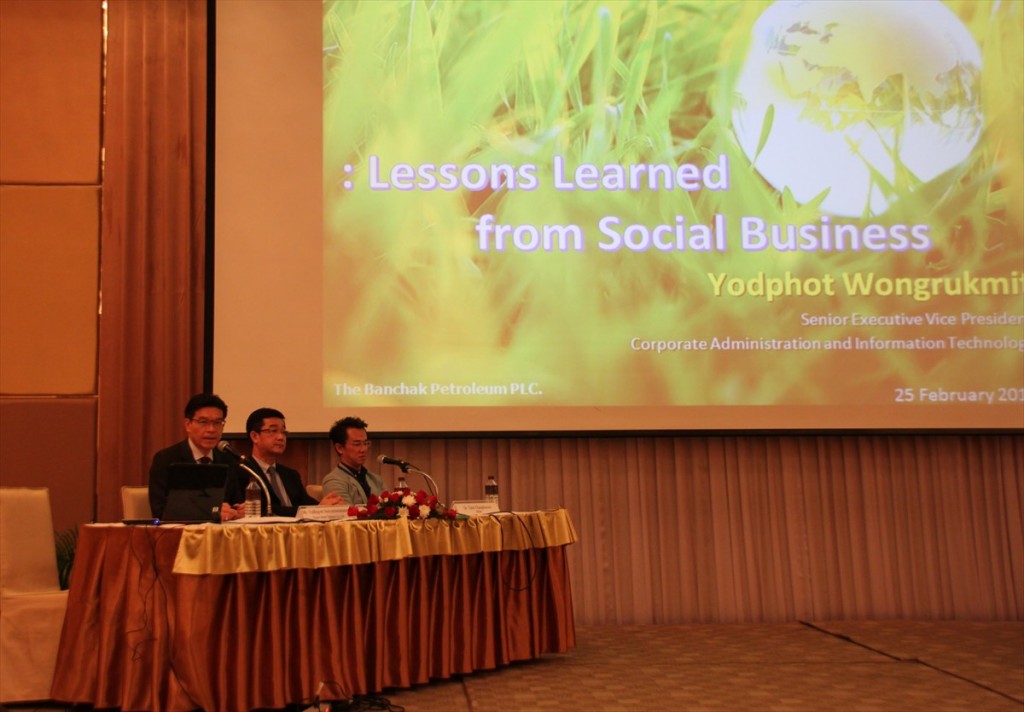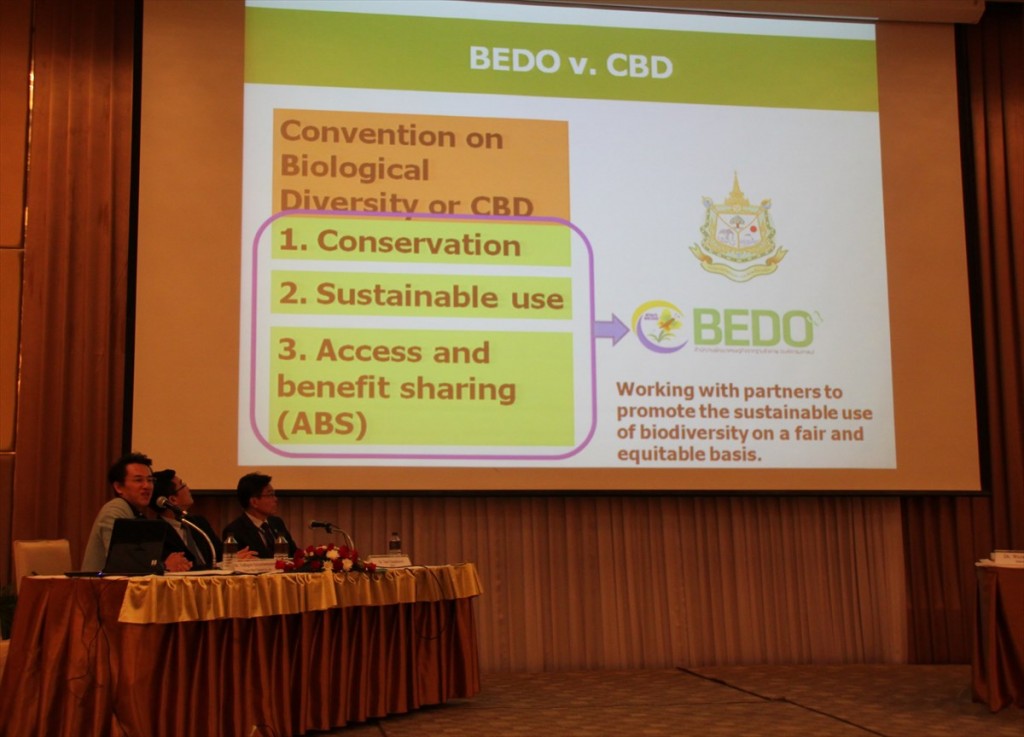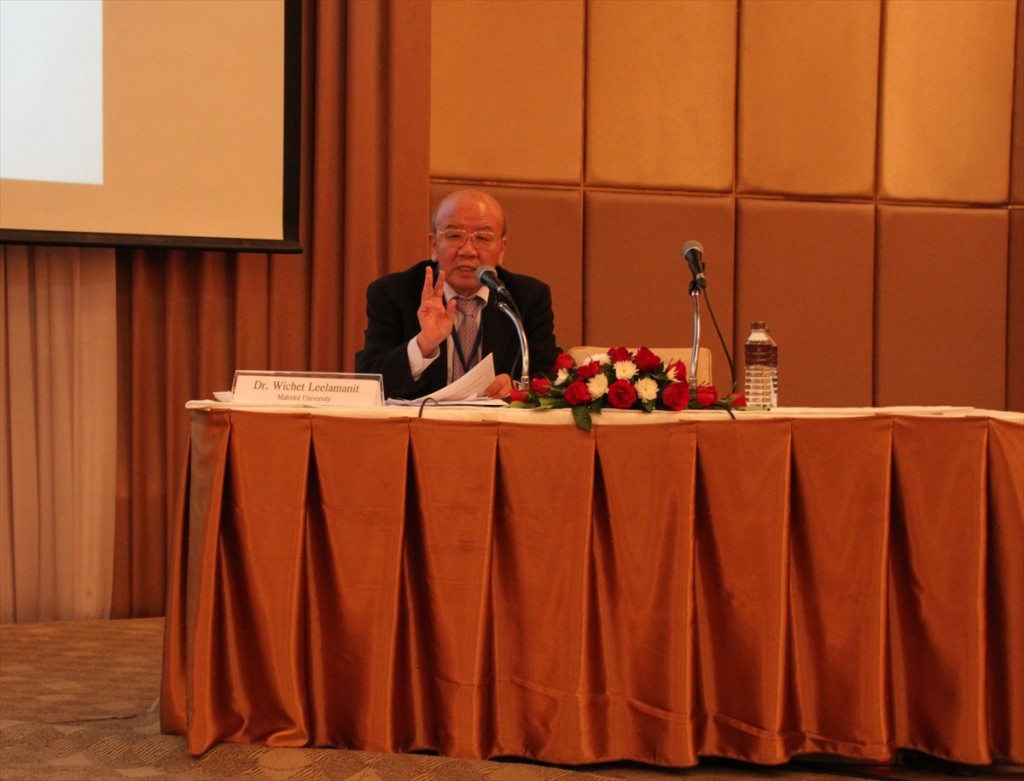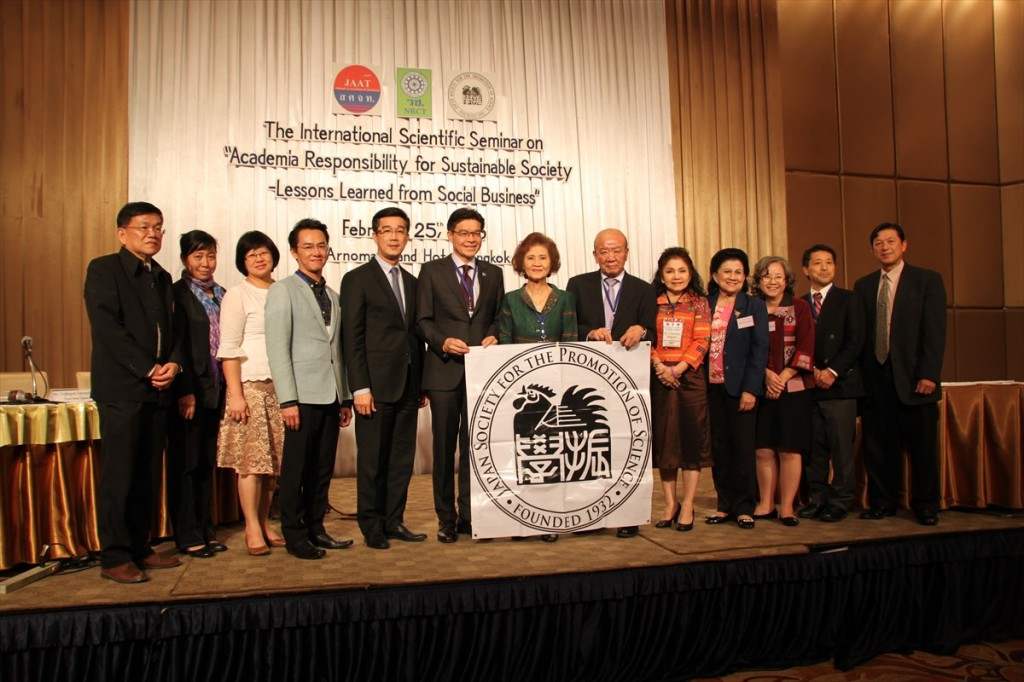On 25th of February, 2016, JSPS-JAAT-NRCT seminar “Academia Responsibility for Sustainable Society-Lessons Learned from Social Business” was held at Arnoma Hotel, Bangkok.
It was the first international seminar with guest panelists from JSPS Alumni Association in Bangladesh (BJSPSAA) and JSPS Alumni Association in the Philippines (JAAP). Dr. M. Afzal Hossain, president of BJSPSAA, Dr. Nur Ahamed Khondaker, general secretary of BJSPSAA and Dr. Jaime C. Montoya, president of JAAP joined not only the symposium but also interacted with members of JSPS Alumni Association in Thailand.
The seminar was kicked off with the welcome remarks by Ms. Jintanapa Sobhon, senior advisor for research, NRCT, Mr. Kazunori Higuchi, head of Overseas Fellowship Division of JSPS Tokyo Headquarters and Dr. Sunee Mallikamarl, president of JAAT.
The morning session featured Japanese, Thai, Bangladeshi and Philipino speakers for the lecture and panel discussion in English.
Dr. Yuji Suzuki from Hosei University made the keynote lecture under the title of “Challenges and Prospects of Higher Education and Research Institutions in Asia,” discussing how academia should improve and enhance their activities in cooperation with industries and communities in order to contribute to establish sustainable society.
Following was another kenote lecture by Dr. Edward Rubesch, director of Innovation Driven Entrepreneurship Programs at the University of the Thai Chamber of Commerce under the title of “Social Enterprise: Overview,” introducing various example of social business and their impact on the society.
In the following panel discussion, Dr. Kim Gwang-Jo, director of UNESCO Bangkok chaired the session. Three panelists, Dr. Montoya of JAAP, Dr. Hossain of BJSPSAA and Dr. Ayame Suzuki of Doshisha University made the presentation on academia responsibility for sustainable society based on their research areas.
Dr. Montoya, the executive director of Philippine Council of Health, Department of Science and Technology (DOST-PCHRD), introduced various projects conducted by DOST-PCHRD for sustainable health and healthcare system.
Dr. Hossain, the dean of Faculty of Agriculture, Bangladesh Agricultural University and the former vice-chancellor of Hajee Mohammad Danesh Science & Technology University introduced the Grameen Bank as successful example of social business and stated that academia and social business would be able to cooperate in various fields.
Dr. Ayame Suzuki made a presentation under the title “Transformation from a learner to a change agent” and introduced how her students deepened “knowing” thorough fieldwork in Mukugawa, Japan.
In the Q&A session, participants raised various questions such as “how to establish sustainable sosiety in developing countries” and “how academic education can contribute to industries and society.” Dr. Yuji Suzuki, also joined as a panelist stated that although education could be a big business for recent value-added social business, it is important to balance fundamental of education and its implementation in business.
The afternoon session featured lecture and panel discussion and conducted in Thai.
Dr. Phiphat Nonthanathorn, director of Social Enterprise Leadership Center, Kasetsart University made the keynote lecture under the title of “Social Business for Sustainable Develpment,” introducing history and structure of social enterprise and various examples of succesful social business.
In the following panel discussion, Dr. Wichet Leelamanit from Faculty of Science, Mahidol University chaired the session. Three panelists, Mr. Vudhigorn Suriyachantananont, executive vice president of Toyota Motor Thailand Co., Ltd., Mr. Yodphot Wongrukmit, senior executive vice president of Bangchak Petroleum Public Company Limited, and Dr. Tanit Changthavorn, acting director general, Biodiversity-Based Economy Development Office (BEDO) made the presentation on activities of their companies and organization for sustainable society.
Mr. Vudhigorn introduced Toyota’s business philosophy, policy on social contribution, educational support and foundation to support needy people and role model of social innovation.
Mr. Yodphot introduced the concept of sufficiency economy and the company’s training programs to enhance competency of staffs. In the end of the presentation, he quoted “sustainability doesn’t mean less profit, it means profit forever” by Phillip Barlag.
Dr. Tanit introduced that BEDO worked with partners to promote the sustainable use of biodiversity on a fair and equitable basis and Namkian Community Enterprise with which BEDO worked to build sustainable biodiversity based community.
In the Q&A session, participants raised various questions such as how big companies such as Toyota developed human resources and how BEDO cooperated with other community enterprises.
Prof. Yamashita, Director of JSPS Bangkok Office closed the seminar, which was received remarkable attention from 130 participants.








